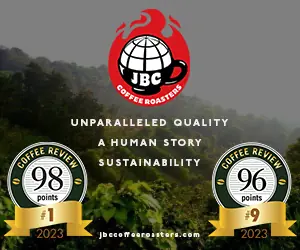Courtesy of Kenneth Davids, 21st Century Coffee: A Guide
Honduras is a coffee paradox. On one hand it produces a large volume of coffee, and most of it is decent to very good coffee. Honduras usually ranks first in Central America, third in Latin America and fifth globally in coffee exports by volume. This is a tremendous achievement for such a relatively small country, and an important one for the economy and people of Honduras.
On the other hand, Honduras coffees have not generated nearly as much excitement in fine coffee circles as have offerings from some other Central America producers like Costa Rica or Panama, for example. The main growing areas in Honduras are impressively high in elevation and recent coffee leadership appears vigorous and knowledgeable. But the coffee varieties grown in Honduras, even the traditional varieties, are not particularly distinctive in cup character and producers are just beginning to experiment with differentiation through processing method. Nevertheless, small lots of fine, distinctive coffees are beginning to appear regularly from Honduras producers, and more are doubtless on the way.
Honduras Varieties
Traditional Varieties.
The traditional Bourbon appears to be the only distinctive-cupping variety widely grown in Honduras, though it almost always comes to market mixed with less distinctive varieties, particularly with Caturra and the respected Catuaí.
Newly Introduced Varieties.
Small lots of cup-distinctive varieties like Geisha/Gesha and Pacamara are just beginning to appear from Honduras. On the other hand, many fields have been renovated with rust-resistant hybrids incorporating Robusta genes, particularly Lempira and IHCAFE 90. Unfortunately, in 2017 Lempira proved to be susceptible to a new strain of the rust disease, and as many as four new strains of rust have now been identified in Honduras fields. The long-term impact of this renewed threat is not clear at this writing, although Honduras production showed a rather dramatic decline in 2019.
Honduras Processing Methods
Producers generally appear to be standing pat with variations on wet processing. The best Honduras coffees are flawlessly processed and pure, although variations in drying can produce more rustic notes that can range from pleasantly herbal and molasses-like to rough and unpleasantly dirty. A growing number of producers are beginning to experiment with alternative processing methods – natural, honey, anaerobic – with sometimes impressive results.
Honduras Growing Regions
The Honduran coffee authorities have undertaken the same branding by region that has been pursued in some other Central American producing countries. As is the case with virtually all such efforts, the countrywide homogeneity imposed by similar-tasting tree varieties and very similar wet-processing procedures tends to trump any broad, predictable distinctions between the various regions. Small lots from clearly identified cooperatives or farms may show considerably more meaningful differences than any generalized differences expressed by larger region.
Nevertheless, for the record the Honduran coffee authorities have designated six coffee-growing regions. The highest grown and most admired coffees tend to come from three regions ranged along the mountainous spine that borders Guatemala and El Salvador: Copán, Opalaca and Montecillos. Confusing the matter of growing-region names is the well-known regional coffee name Marcala. Marcala is a registered Appellation of Origin, the first established in Central America (2005), and includes some of the most admired and highest elevation of the coffee-growing municipalities and departments in western Honduras near the El Salvador border. Thus it in part overlaps the Copán, Opalaca and Montecillos branded regions.
The Traditional Honduras Cup
Typical Global Descriptors.
Classic, balanced. Some high-grown coffees may be powerfully acidy and bright, but most good Honduras coffees are pleasingly balanced in acidity, smooth in mouthfeel, and, when everything is done right during processing, sweet and rather chocolate-toned.
Common Aroma/Flavor Notes.
Frequent variations on chocolate. In high-grown, cleanly processed samples from traditional tree varieties additional notes of flowers, quiet citrus, caramel and nut are typical. Delays in drying (common with some small-holder coffees) can produce heavy, rustic notes: molasses, tobacco, herb.
Honduras Coffee Ratings and Reviews
Click here to view ratings and reviews of coffees from Honduras.










